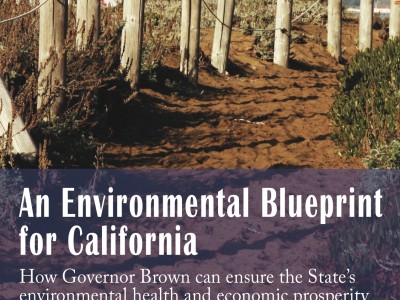Region: California
California’s Delta Stewardship Council Gets Down to Business
Today California’s Delta Stewardship Council begins its deliberations on a Delta Plan that promises to be a big part of the answer to one of that state’s most pressing environmental questions: can California’s Delta be saved? Creation of the Delta Stewardship Council was a key element of landmark 2009 California legislation designed to address the …
Continue reading “California’s Delta Stewardship Council Gets Down to Business”
CONTINUE READINGA New Thought on Smart Growth
The Public Policy Institute of California just released its new report on SB 375, California’s smart growth law. I’m still working my way through it, and at the beginning, it seems pretty boilerplate. For example, it notes that three things California can do to reduce emissions are “Higher-density development, particularly in areas well-served by transit; …
Continue reading “A New Thought on Smart Growth”
CONTINUE READINGEPA prepares to wade into the Bay-Delta
Cross-posted at The Berkeley Blog. EPA has announced “an information-gathering process on how the EPA and the State of California can achieve water quality and aquatic resource protection goals” in the California Bay-Delta. EPA is not proposing any new regulations yet, but it is seeking public comment on what it might do to address water …
Continue reading “EPA prepares to wade into the Bay-Delta”
CONTINUE READINGThree Obstacles To California Climate Progress
California’s AB 32 — the Global Warming Solutions Act — is the biggest and best thing going on the domestic climate change front. The bill is sweeping in its application and the agency charged with implementing the Act, the California Air Resources Board, has moved aggressively to chart out the path the state will need …
Continue reading “Three Obstacles To California Climate Progress”
CONTINUE READINGCalifornia’s Redevelopment Wars
California’s political leaders are currently struggling with the monumental challenge of finding ways to eliminate the state’s $25 billion budget deficit. Somewhat surprisingly, one of the most controversial deficit reduction proposals offered by newly-installed Governor Jerry Brown involves elimination of California’s 425 redevelopment agencies. Estimated savings: $3 billion per year. Such a reduction in state …
Continue reading “California’s Redevelopment Wars”
CONTINUE READINGAnd now for some good news
If you’re as depressed as I am by the current political climate and attempts on Capitol Hill to roll back everything from clean air protections to food safety, you might be feeling the need for some good news. Here’s at least a small antidote. The San Jose Mercury News reports that fish and birds are …
Continue reading “And now for some good news”
CONTINUE READINGCourt’s AB 32 Ruling Is Quite Narrow and At Most a Temporary Setback
Cara published a terrific summary of a tentative California superior court decision in which the court held that the state’s Air Resources Board (CARB) violated the California Environmental Quality Act (CEQA) in implementing AB 32, the state’s landmark climate change legislation. The CEQA portion of the ruling — should the judge stick with it when …
Continue reading “Court’s AB 32 Ruling Is Quite Narrow and At Most a Temporary Setback”
CONTINUE READINGCalif court tentatively rules AB 32 implementation unlawful
A California superior court has issued a proposed decision, not yet final, holding that ARB failed to comply with the California Environmental Quality Act (CEQA) in its adoption of the Scoping Plan that is guiding its implementation of AB 32, California’s landmark climate change law. The ruling proposes to set aside ARB’s CEQA documentation and to …
Continue reading “Calif court tentatively rules AB 32 implementation unlawful”
CONTINUE READINGCalifornia Environmental Blueprint: Environmental monitoring & modeling
This post is the second in our ongoing series on our Environmental Blueprint for California. In our Blueprint, we recommended that Governor Brown establish an independent, statewide agency or council devoted to compilation, modeling, prediction and presentation of environmental quality data. I want to elaborate on what this agency might look like and why we believe …
Continue reading “California Environmental Blueprint: Environmental monitoring & modeling”
CONTINUE READINGCalifornia Environmental Blueprint: Protect and Restore Funding
This post is part of an ongoing series on our Environmental Blueprint for California, released by UCLA Law last week. I’ll talk about the first–and, in many ways, most fundamental–recommendation in our paper: that Governor Brown do what he can to protect and restore stable, robust funding for our State’s core environmental initiatives. My coauthors and …
Continue reading “California Environmental Blueprint: Protect and Restore Funding”
CONTINUE READING




